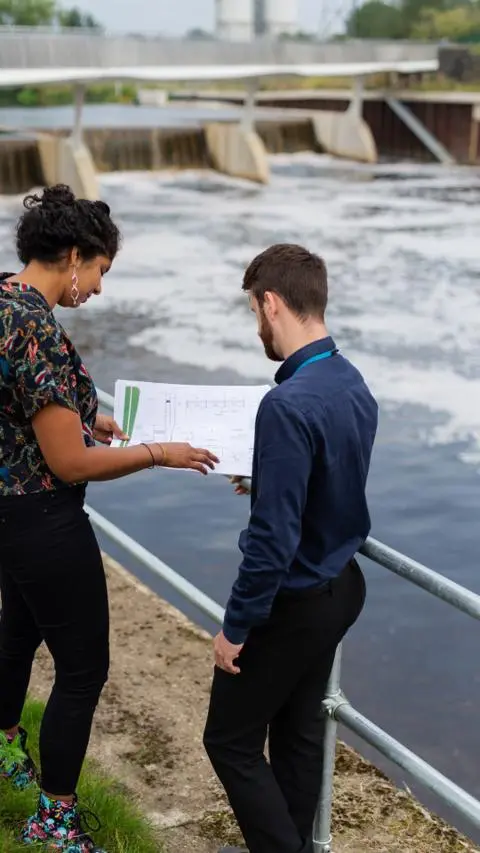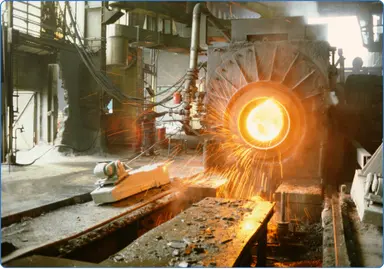Cooling Water Treatment
Cooling towers are vital assets in numerous industrial and commercial operations, serving a critical function in dissipating heat and maintaining optimal operating temperatures for equipment and processes. As a central component in heat exchange systems, cooling towers require carefully managed water treatment to ensure their efficiency, reliability, and longevity. Without proper water treatment, issues such as scaling, corrosion, fouling, and microbial growth can significantly hinder performance, leading to increased energy consumption, frequent maintenance needs, and even system failures.
Effective cooling tower water treatment addresses these challenges by leveraging advanced technologies such as reverse osmosis (RO), multimedia filtration, ultrafiltration (UF), and deionization. These solutions are designed to remove dissolved salts, particulates, and biological contaminants, ensuring high-purity water that optimizes heat transfer and protects critical components. Additionally, biocide dosing systems help control algae, bacteria, and other microorganisms that can form biofilms and reduce efficiency.
Tailoring water treatment strategies to the specific requirements of a cooling system is essential. Factors such as water source, flow rate, and operational conditions dictate the selection of appropriate technologies and processes. Properly treated water not only enhances cooling efficiency but also extends the lifespan of equipment, reduces downtime, and lowers overall operational costs.
Related Products for Cooling Water Treatment

Reverse Osmosis
Utilize semipermeable membranes to remove dissolved salts and impurities, ensuring high-purity water for efficient cooling tower operation.

Multimedia Filters
Employ multiple layers of filtration media to capture suspended solids and reduce turbidity, enhancing overall water clarity and system performance.

Biocide Dosing Systems
Automate the addition of biocides to control microbial growth, preventing biofilm formation and ensuring hygienic water conditions.

Deionization
Use ion exchange resins to eliminate dissolved ions, producing ultra-pure water that minimizes scaling and corrosion in cooling towers.
The Importance of Cooling Tower Water Quality
Cooling tower water quality is paramount for maintaining the efficiency and longevity of cooling systems. Poor water quality can lead to a range of operational issues, including reduced heat transfer efficiency, increased energy consumption, and accelerated wear and tear on mechanical components. Contaminants such as dissolved minerals, suspended solids, and biological organisms can form scale and biofilms, which hinder performance and elevate maintenance requirements. Ensuring high-quality water through effective treatment not only safeguards equipment but also enhances overall system reliability and productivity.
Key Parameters to Monitor?
Hardness and pH Levels
Maintaining optimal hardness and pH levels is essential to prevent scaling and corrosion. High hardness can lead to mineral deposits, while inappropriate pH levels can accelerate metal corrosion, compromising the structural integrity of cooling tower components.
Conductivity and Total Dissolved Solids (TDS)
Monitoring conductivity and TDS provides insights into the concentration of dissolved ions in the water. Elevated levels can indicate the presence of contaminants that may contribute to scaling and reduced heat transfer efficiency.
Dissolved Oxygen and Biological Activity
Dissolved oxygen can promote corrosion and support the growth of microorganisms. Controlling these factors through deaeration and biocide treatments is critical to maintaining a clean and efficient cooling system.
Selection Criteria
Choosing the right boiler feed water treatment solution depends on multiple factors, from the source and quality of the incoming water to the specific operational needs of the facility. Weighing these criteria carefully ensures both cost-effectiveness and robust system performance.
Water Source and Quality
The origin and initial quality of the water supply significantly influence the choice of treatment technologies. Municipal, well, or surface water sources each present unique challenges that must be addressed to achieve desired water purity levels.
Flow Rate & Capacity Requirements
Cooling towers operate at varying capacities depending on the size and demand of the facility. Selecting a water treatment system that can handle the required flow rates ensures consistent performance and prevents bottlenecks in the treatment process.
Budget & Lifecycle Costs
Balancing initial investment with long-term operational and maintenance costs is crucial. Investing in durable and efficient treatment technologies can reduce overall expenses by minimizing energy consumption and extending equipment lifespan.
System Installation & Maintenance
A well-planned installation and diligent maintenance regimen are vital for sustaining optimal boiler feed water treatment results. Properly trained personnel, automated monitoring tools, and standardized procedures contribute to consistent performance.
Pre-Installation Considerations
Before installing a water treatment system, it’s essential to evaluate site conditions, available space, and existing infrastructure. Conducting a thorough assessment helps in selecting the most appropriate technologies and ensures seamless integration with the cooling tower system.
Routine Maintenance and Cleaning
Regular maintenance, including membrane cleaning, filter replacements, and resin regeneration, is vital to sustaining treatment efficacy. Implementing a structured maintenance schedule helps prevent the buildup of contaminants and maintains optimal system performance.
Monitoring & Automation
Incorporating real-time monitoring and automated control systems enhances the efficiency of water treatment processes. Automated alerts and adjustments based on sensor data enable prompt responses to water quality fluctuations, ensuring continuous protection of the cooling tower system.
Economic and Environmental Gains
Investing in effective cooling water treatment yields significant long-term benefits. By improving energy efficiency and reducing waste, facilities can enjoy financial savings while supporting sustainable operations.
Energy Efficiency
High-quality treated water enhances heat transfer efficiency, reducing the energy required to maintain desired temperatures. This not only lowers operational costs but also contributes to a facility’s sustainability goals by minimizing energy consumption.
Reduced Operational Costs
Effective water treatment minimizes the occurrence of scale and corrosion, leading to fewer repairs and lower maintenance expenses. Additionally, optimized water usage reduces the need for chemical additives, further decreasing operational costs.
Compliance and Sustainability
Adhering to environmental regulations regarding water discharge and treatment standards is essential for sustainable operations. Implementing advanced water treatment solutions ensures compliance with legal requirements and demonstrates a commitment to responsible environmental stewardship.
Frequently Asked Questions
Water treatment prevents scaling, corrosion, fouling, and microbial growth in cooling towers, ensuring efficient heat transfer, reducing energy consumption, and extending equipment lifespan.
Untreated water can lead to severe operational issues such as scale buildup, corrosion of components, biological contamination, and reduced system efficiency, resulting in increased maintenance costs and downtime.
Common technologies include reverse osmosis (RO) for removing dissolved salts, multimedia filters for particulates, deionization (DI) for ion removal, and biocide dosing systems to control microbial growth.
Water testing should be conducted regularly, typically weekly or monthly, depending on system requirements and water quality. Real-time monitoring systems can further improve control and response.
Critical parameters include pH, hardness, conductivity, total dissolved solids (TDS), alkalinity, and microbial activity. Maintaining these within optimal ranges ensures efficient operation.
Yes, treated water improves heat transfer efficiency, reduces scaling and corrosion, minimizes chemical usage, and extends the lifespan of components, all of which lower operating expenses.
Biocides are essential for controlling algae, bacteria, and fungi growth, preventing biofilm formation that can impair efficiency and hygiene.
The choice depends on factors like water source, flow rate, operating conditions, and budget. Consulting with water treatment experts ensures tailored solutions for your specific needs.
Modern water treatment systems incorporate sustainable practices, such as reducing chemical use, optimizing water reuse, and minimizing waste discharge, to align with environmental standards.
Proper water treatment ensures adherence to local and international standards for water quality, discharge limits, and environmental sustainability, avoiding legal and operational penalties.